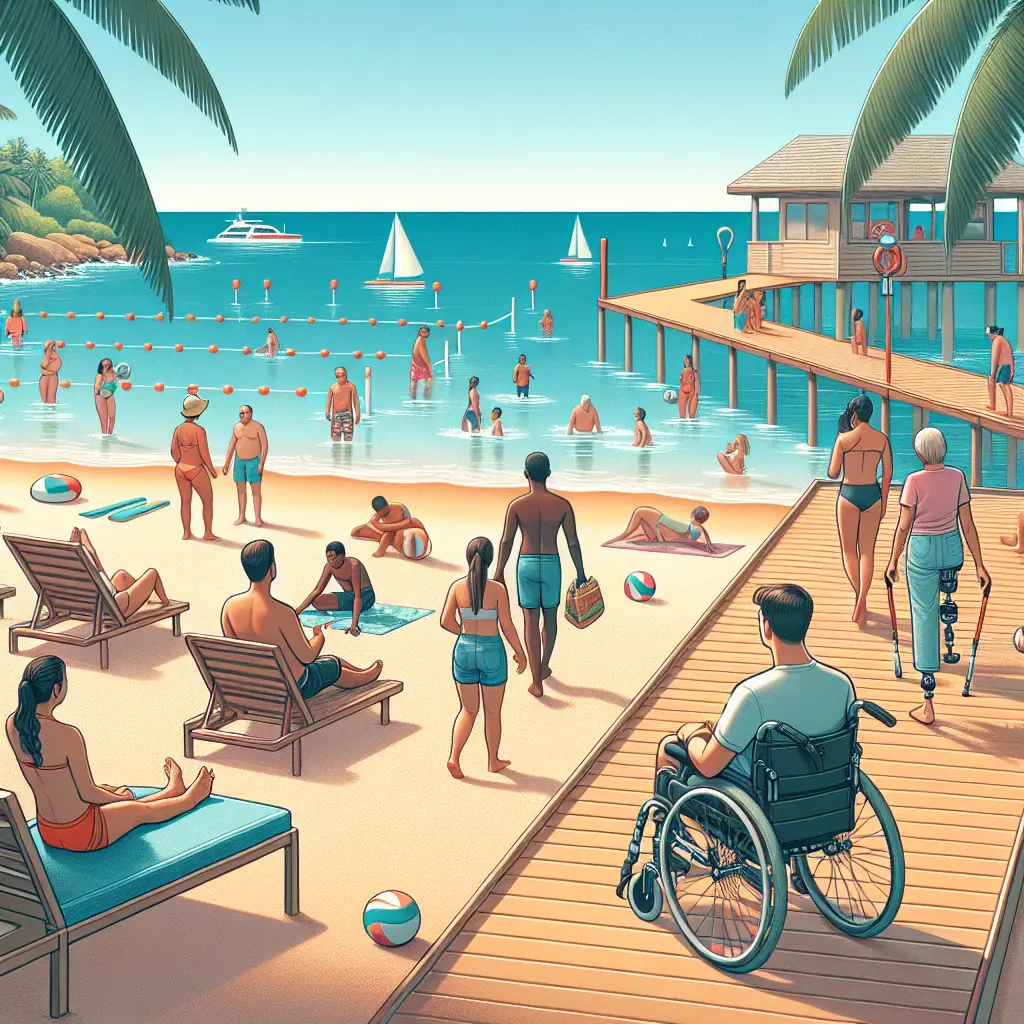
Exploring Accessible Beach Destinations for Travelers with Disabilities
For many travelers with disabilities, enjoying the serenity of a beach vacation has become increasingly accessible. As awareness grows and initiatives expand, more beaches around the world are being designed or retrofitted to accommodate those with mobility challenges. Whether you're in search of inclusive beach vacations or looking for tips on how to navigate accessible coastal destinations, there's a wealth of options available. This comprehensive guide will explore the latest developments in disability-friendly beaches, wheelchair-accessible beaches, and accessible seaside destinations.
The Growing Need for Accessible Travel Options
Recent news highlights the growing demand for accessible travel options. Sophie Morgan, a well-known TV host and advocate for disability rights, has expressed her frustration with air travel experiences, noting that pets often receive better treatment than passengers with disabilities. This highlights a broader issue within the travel industry where accessibility is not just about physical access but also encompasses dignity and respect.
The need for inclusive transportation doesn't stop at air travel. Toby McGraw, Chief Revenue Officer of Beep, emphasizes the importance of sustainable and accessible public transit systems. As cities like New York implement congestion pricing plans to enhance mass transport infrastructure, these improvements are crucial for ensuring that all individuals, including retirees and those with disabilities, can access beach destinations with ease.
Innovations in Accessible Beach Activities
Summer 2024 has seen significant advancements in making water activities more inclusive. The Reeve Foundation has been at the forefront of campaigning for better access to beaches, lakes, and pools for individuals with paralysis. This push for inclusivity ensures that wheelchair users can partake in a variety of disability-friendly beach activities such as adaptive surfing lessons and tranquil seaside yoga sessions.
These initiatives highlight the importance of barrier-free beach holidays. By prioritizing ease of access and specialized activities, these destinations ensure that everyone can enjoy the beauty of coastal travel.
Enhancing Accessibility at Global Events
In preparation for the 2024 Paris Olympic and Paralympic Games, Airbnb has partnered with APF France Handicap to offer 1,000 step-free homes in the Paris region. This collaboration exemplifies how global events can catalyze improvements in accessibility, creating lasting benefits for both local communities and international visitors.
Travelers heading to these events can rest assured knowing that their accommodation needs are being considered. The step-free features and other accessible amenities make it easier for individuals to enjoy the games and explore nearby beaches.
Practical Tips for Accessible Beach Travel
Planning an inclusive beach vacation requires some forethought. Here are some accessible beach travel tips to ensure a smooth experience:
Research Destinations: Look for beaches specifically advertised as wheelchair-accessible. Many locations now have websites detailing their accessibility features.
Contact Local Authorities: Reach out to local tourism offices or disability advocacy groups for recommendations on the most accessible seaside destinations.
Use Technology: Apps and online forums can provide real-time updates on accessibility issues or new features at various beaches.
Engage in Community Discussions: Platforms like Shane Hryhorec's travel blog offer firsthand insights into navigating beaches and coastal areas as a wheelchair user.
By taking advantage of these resources, travelers can plan trips that are both enjoyable and accommodating to their needs.
Case Study: A Model of Accessibility
One standout example of an accessible coastal destination is California's Huntington Beach. Known as "Surf City USA," Huntington Beach has invested in beach wheelchairs, accessible paths, and adaptive surfing programs. This comprehensive approach has made it a model for other beaches seeking to enhance their disability-friendly offerings.
The success of Huntington Beach underscores the importance of community engagement and thoughtful design in creating truly inclusive beach experiences. By incorporating feedback from individuals with disabilities, destinations can continually improve their facilities and offerings.
Conclusion: Embracing Accessibility for All
As we continue to celebrate advancements in disability-friendly coastal travel, it's crucial to recognize the ongoing challenges and opportunities. From improving care for neurodivergent travelers to ensuring compliance with the Americans with Disabilities Act (ADA), there's a collective responsibility to make all travel experiences inclusive.
Engaging with these efforts not only benefits travelers with disabilities but enriches the broader travel community by fostering environments where everyone feels welcome. As you plan your next adventure, consider how you can contribute to this movement by supporting destinations committed to accessibility.
Whether it's through exploring pristine shores or indulging in relaxing beachfront stays, your perfect barrier-free beach holiday awaits. Dive deeper into the world of accessibility and discover how you can embark on an unforgettable adventure by the sea.
Warm regards,
Victor Lancaster